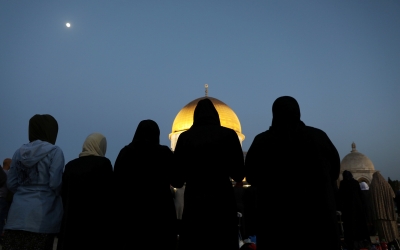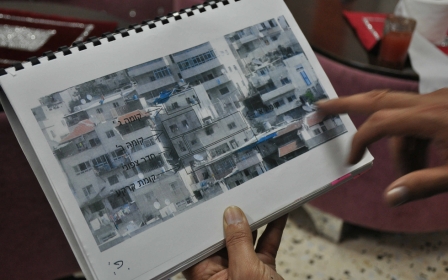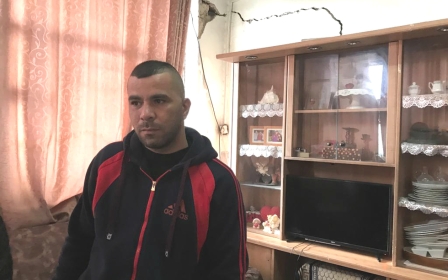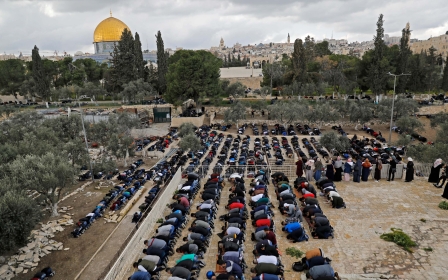Israeli police evict Palestinian family in East Jerusalem, as settler group moves in
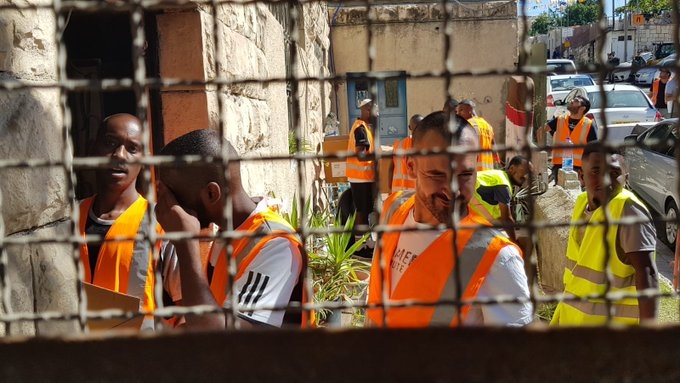
Israeli police evicted a Palestinian single mother and her four children from their home in the occupied East Jerusalem neighbourhood of Silwan on Wednesday, in order to hand it to the Elad settler organisation.
Jawad Siyam, a prominent local activist who shared the ownership of the property with his family, had been embroiled in a lengthy legal battle over the property with the rich and powerful Elad for the last 24 years.
He was arrested during the eviction of his sister and her children, according to local media.
Since the 1990s, the Siyam family won several lawsuits in Israeli courts against Elad, but the settler group appealed each time and presented documents to the judges to prove its ownership of the property.
Last month, the Jerusalem District Court in Jerusalem ruled in favour of Elad, a powerful organisation whose assets are estimated to be worth more than 300 million shekels ($84m).
The Siyam family is now left with only two housing units from an eight-unit building after Elad got four units.
Two other units went to the Israeli Custodian of Absentees’ Property - a colonial body formed in the wake of the 1948 Nakba (Catastrophe) to take control of properties belonging to Palestinians who fled repression during the creation of the state of Israel.
Elad members took over the latest Siyam apartment on Wednesday, removing the family's belongings, changing the locks, erecting fences between them and the Siyams and cutting trees in the garden, eyewitnesses said.
Elad head David Beeri was filmed surveying the property and then shaking hands with an Israeli police officer. Beeri received the Israel Prize lifetime achievement award in 2017.
Jawad Siyam is the founder and director of the Wadi al-Hilweh Information Centre, an NGO that aims to provide media and the public information on Israeli settler activities in Silwan and Wadi al-Hilweh neighbourhoods and the excavation and tunnel digging carried out under Palestinian houses by Israeli authorities.
Palestinians have long accused Israel of attempting to "Judaise" occupied East Jerusalem and displace its 300,000 Palestinian residents in order to fully control the holy city.
The two neighbourhoods are south of the walls of the Old City of Jerusalem, and near Al-Aqsa mosque. The neighbourhood has been an active area for settlers and the Israeli authorities, where excavations are still carried out under the houses of Palestinians to find the lost City of David.
In the last three decades, Elad has taken around 75 Palestinian houses.
Last month, US ambassador to Israel David Friedman and White House Middle East envoy Jason Greenblatt attended the opening of a disputed tunnel under Silwan.
The tunnel project, called the Pilgrimage Road by the Israeli government, has been built over the past eight years under the sponsorship Elad. It passes under the Palestinian majority neighbourhood of Wadi al-Hilweh.
Since 1995, the Israel Antiquities Authority has been excavating sites in Wadi al-Hilweh with the support of settler foundation Ir David, officially in order to create a new tourist attraction and find evidence of the existence of the three-millennia-old City of David in the area.
The completion of the new "City of David" project, including a Roman-style "avenue" built over streets that have been home to generations of Palestinians, would cement the position of the 450 illegal settlers currently living in Silwan under heavy armed guard, and marginalise the 10,000 Palestinian residents of the neighbourhood.
Middle East Eye propose une couverture et une analyse indépendantes et incomparables du Moyen-Orient, de l’Afrique du Nord et d’autres régions du monde. Pour en savoir plus sur la reprise de ce contenu et les frais qui s’appliquent, veuillez remplir ce formulaire [en anglais]. Pour en savoir plus sur MEE, cliquez ici [en anglais].


